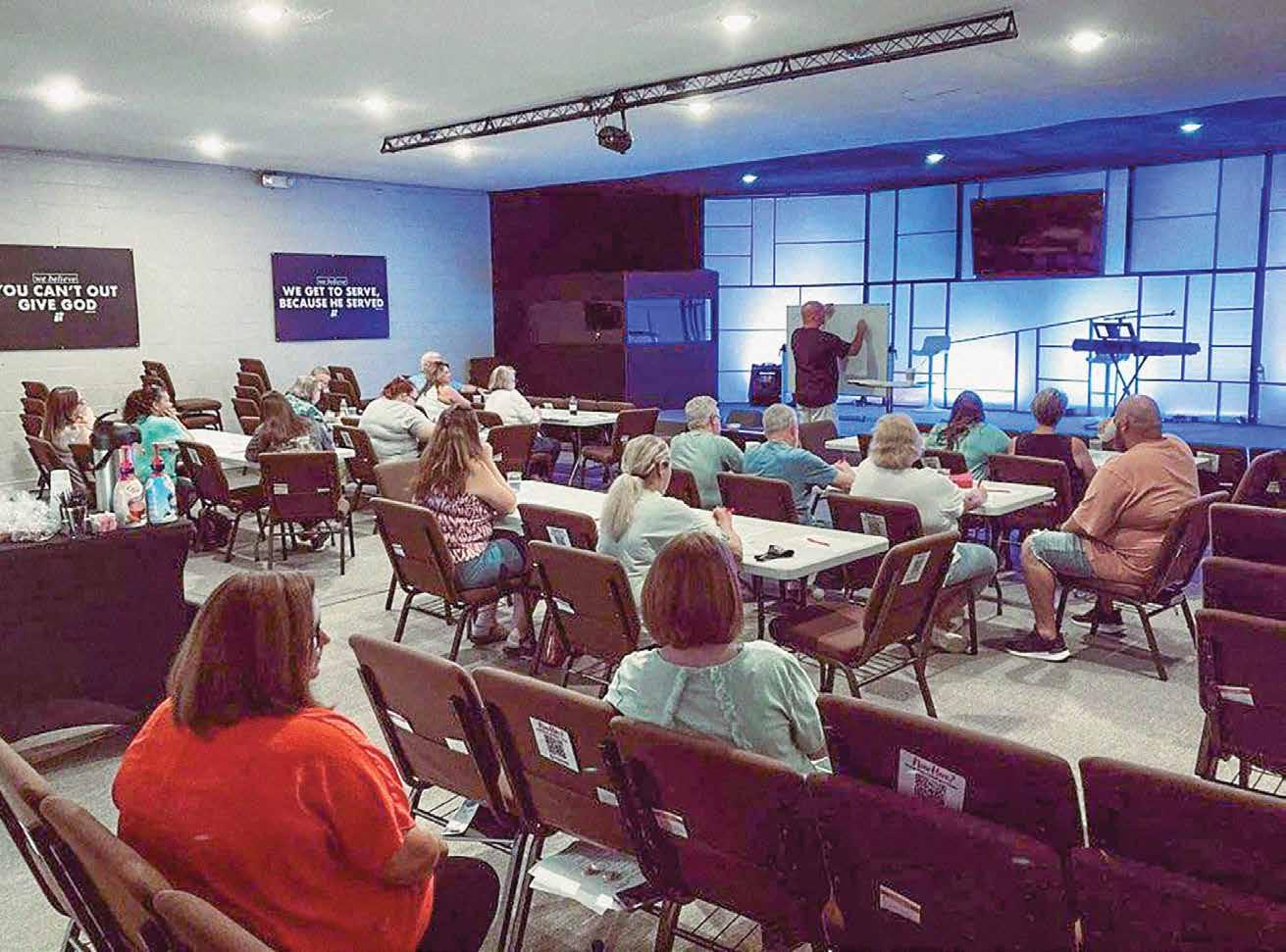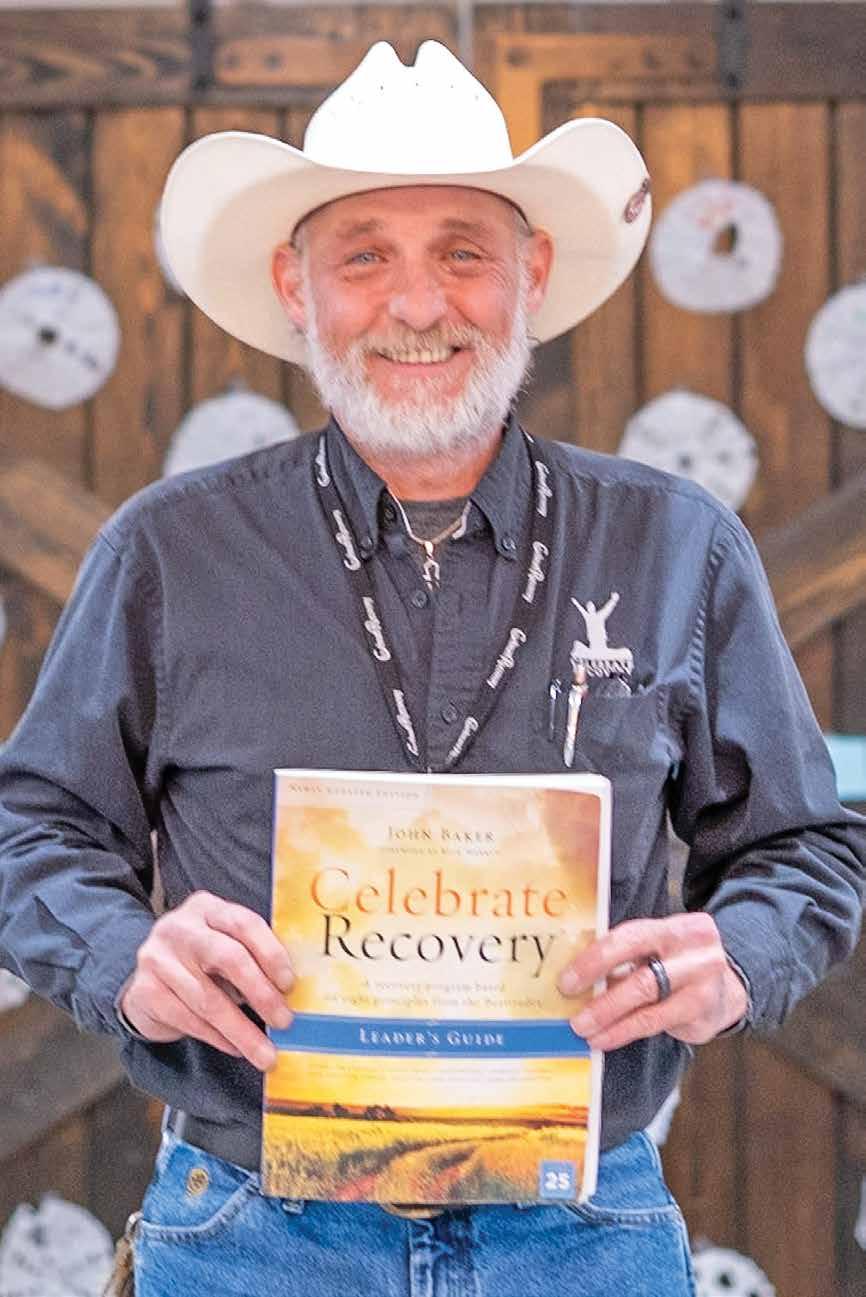
8 minute read
Celebrating recovery
Healing ‘hurts, habits, hang-ups’ one step at the time
“Celebrate Recovery is for any hurt, habit or hangup,” explained Neal Fuller Jr.
Advertisement
In recovery himself for 29 years, Fuller is full-time Celebrate Recovery director for the United Methodist Conference. His group meets Tuesday evenings from 6-8 p.m. at Gateway Church.
He said helping others walk the path he’s already traveled helps him maintain his own sobriety as well. “When we serve others, we help ourselves.”
“We meet people where they are,” he added. “This is a Christ-centered recovery program, but not everybody’s ready for Jesus.” He explained it’s a “step-study” program. “That’s where the healing and transformation really comes from.”
Fuller said for the first 10 years of his own recovery, he used Hank Williams Jr.’s music to help keep him sober. “I didn’t want no part of Jesus. My ‘higher power’ was music in the beginning.”
Originally from Indiana, he moved to Alabama in 1997, first to Florence and later to Russellville, after which he met his nowwife, Sondra, in Tharptown. They moved to Tuscaloosa, where they lived for 17 years. They returned to Franklin County three years ago when COVID hit.
Fuller said he originally started going through the Celebrate Recovery program to seek help overcoming addiction and alcoholism but has since found he also struggles with depression, childhood issues and more.
“I have to deal with them, and I use Celebrate Recovery to do that. He said the 12-step worldwide ministry is based on Matthew 5 – “the beatitudes, the way Jesus told us to live.”
Seeing Big Changes
Fuller said he’s seen lives change through the process of Celebrate Recovery, going from “total, deep-seated hate to completely loving their neighbor.” He recalls a specific example, a man who within six months to a year “came to Christ, saw the light and finally just changed.” Fuller said he is a “totally different person” now, one people “would not recognize as the same man.”
The results Fuller has seen aren’t isolated to his own experience or program. David Kelley, pastor of Trinity Assembly in Red Bay, said for the past 15 years, his church has hosted and sponsored a Celebrate Recovery group as part of their community outreach. “We’re just trying to make a difference by helping people,” he explained. In line with the Russellville program, he said their group is not just for those with addictive behaviors but offers a place for anyone with “hurts, hang-ups and habits” – though the majority are those struggling with addictions, including alcohol and drugs as well as other addictive behaviors, such as pornography.
Kelley said some come for help dealing with grief over losing a loved one or going through a divorce or dealing with other traumatic experiences. The goal, he explained, is to give people an opportunity “to have hope and see there’s help out there and that they can change.”
“We have small groups, and that helps,” he continued. “We’re also there to support family members being affected by someone with addictive behaviors.”
Kelley said Patrick Brooks is program coordinator at Trinity Assembly. Like Fuller, Brooks has himself escaped an addictive lifestyle. “Patrick and his parents helped me get this program kicked off here,” Kelley said. “We are right on the state line with Mississippi here, and we also reach out to Tishomingo and Itawamba counties.”
Kelley said Brooks and the church work to provide a non-threatening environment where people won’t feel judged and can see there are people who care and want to help them. “It hasn’t been easy,” Kelley said, “but it’s certainly been worth it. We’ve seen a few people fall through the cracks, and we’ve also seen a lot of people who have been helped, as well.”
He said they have connected with some long-term rehabs to provide options for those who need more help than a weekly meeting can provide.
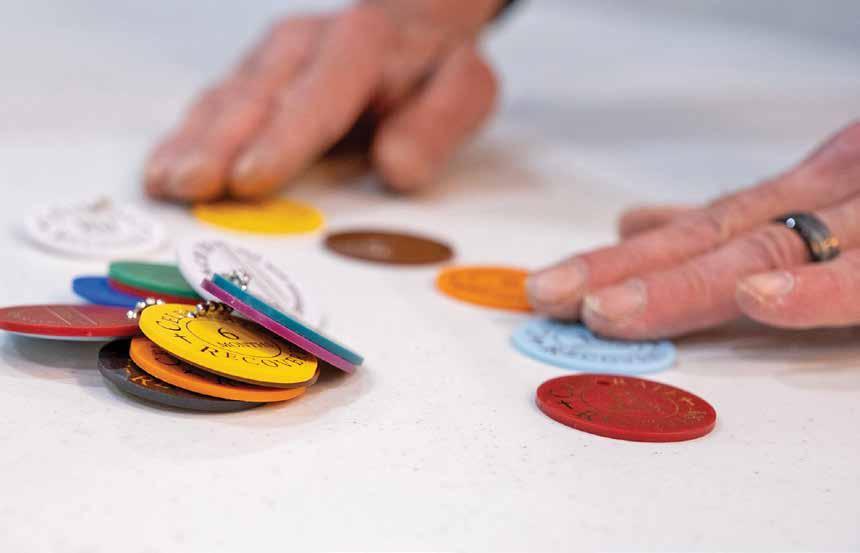
“We want people to know there’s a different life they can live, but it’s a choice you have to make,” Kelley added. “Addictive behavior has a very strong hold on people’s lives, and they need help to overcome it.”
What They Have Faced
Fuller said the program is designed to help people battling addiction, as well as a variety of issues, including anger, anxiety, grief and many others – “any issues that take us away from God, anything we’re struggling with that we just can’t seem to get past.”
Fuller explained both of his parents were alcoholics, and he “wanted to be somebody new,” somebody who wasn’t an “addict, manipulator, liar, cheat, steal or sneak.”
His sponsor – someone who walks with a person during recovery – told him he had two choices: to live his old life and eventually relapse or to change his life and never go back.

“I finally quit fighting and surrendered my life to Jesus,” Fuller said.
One person who has been going to the Russellville group, Tina, said she is gaining more than she could ever imagine. “I’m seeing lives change in front of my eyes, and it’s absolutely amazing,” she said. “I want people to know that there is help, and with God as your higher power, anything is possible.”
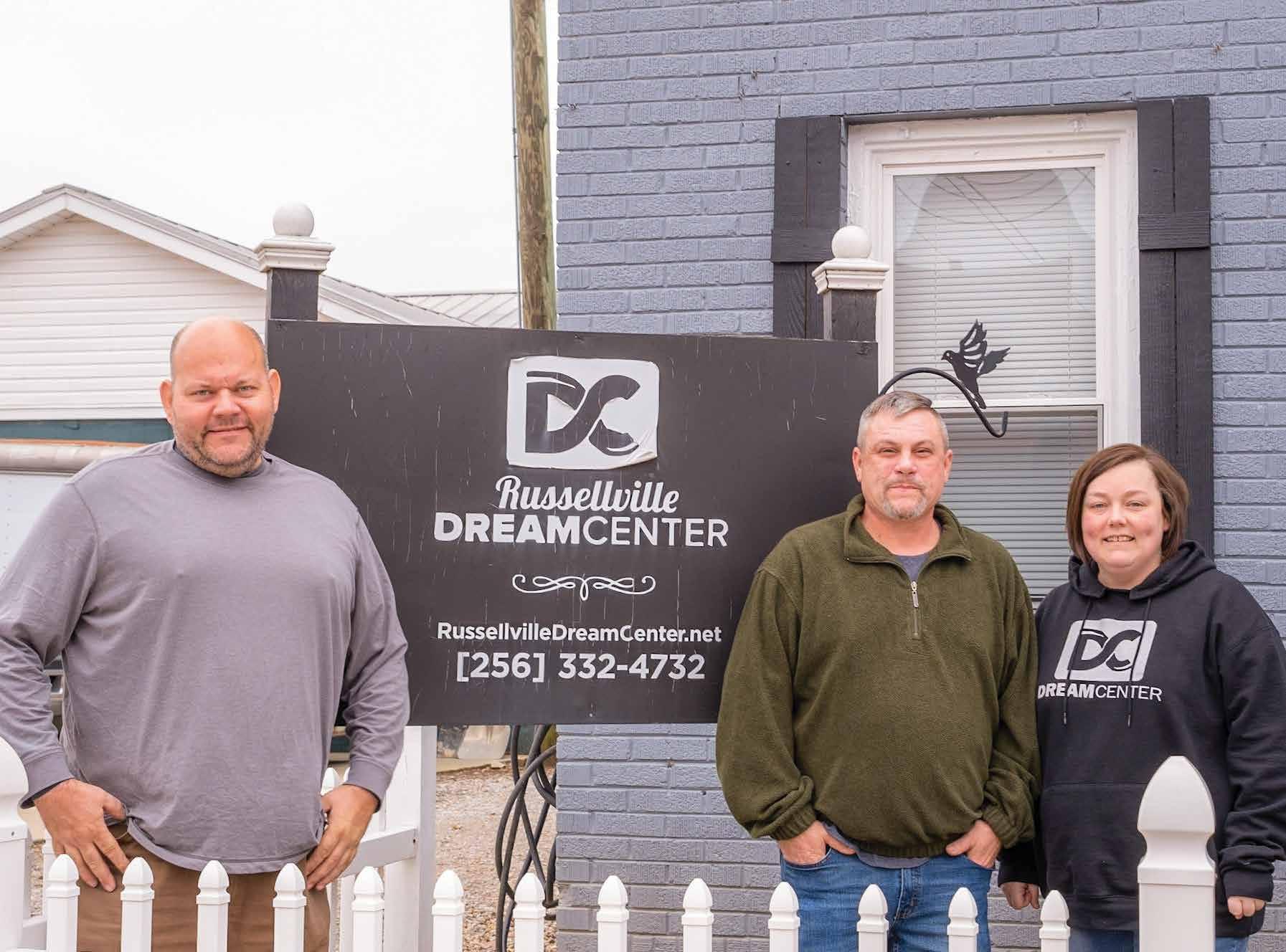
Tina said to say she was powerless and that her life was a mess before starting this program would be “such an understatement,” explaining she has “so many issues” she works through every day, including “anxiety, anger and resentment toward a situation I can’t control.”
“I work every day to keep going,” she added.
Jordan Ruple is among those attending the Red Bay program. “I’m a recove - ring drug addict from way back,” he said. “Celebrate Recovery is an awesome place to be. I try to keep my week full of the spirit somehow. Jesus is the true reason I’m set free. If you work the steps, then it works, but if you just come to get your court-ordered attendance card signed and go back out into the world and don’t apply it to your life, then it won’t do much good.”
Ruple said he’s glad to have the opportunity to try to encourage people and help them find hope – to see that there’s life beyond addiction. “My all-in date right now on recovery is eight months, but I’ve been coming, off and on, for the past two or three years,” he added.
Brooks, as ministry director for Trinity’s Celebrate Recovery program, explained they want to provide a safe place for people to come and to know their privacy and anonymity will be closely guarded.
“I’ve been sober 17.5 years,” he said. “I was addicted to meth and got forced into a treatment center. I couldn’t go a single day without smoking it in the beginning.” Three years into his sobriety is when he started the program at Trinity Assembly.
“It’s about having a place that’s always there where people won’t be judged,” he added, “and if they lapse or decide to leave otherwise and later return, we don’t ask where they’ve been. We just say we’re glad to see them.”
Meetings at both Russellville and Red Bay start at 6 p.m. with a meal and then a period of worship together, followed by small group meetings. Participants go through workbooks and are invited to share their testimonials.
Another attendee in the Red Bay program is Ann Ziels. “I had early childhood trauma,” she said, “and I struggled with drugs and alcohol, mostly methamphetamine.
She started attending because the court ordered her to attend either this or a similar program, but like so many others, she said she found that committing to the steps created real change in her life. “Celebrate Recovery helps you stay on track, and the fellowship with others who are struggling or have struggled helps,” she said. “My kids and grandkids get the best of me now.”
Owen Terry, another participant in the Red Bay program, said he and his wife started attending the church first, later deciding to give Celebrate Recovery a try.
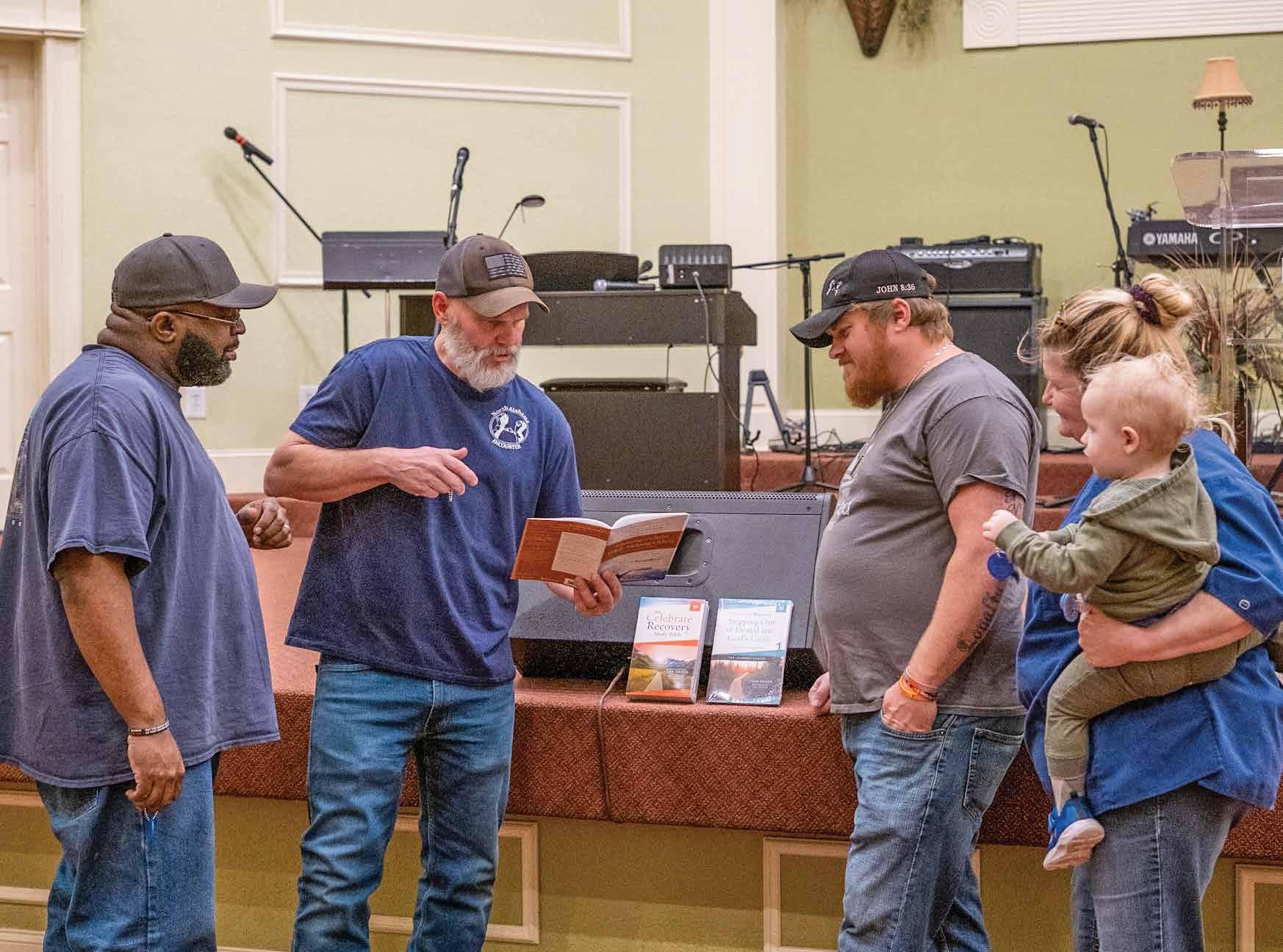
“I’ve been sober for almost 11 years,” he said. “This program really helped me get on the road to sobriety and combating addictive behaviors, including drugs and other struggles, as well as pornography.”
Terry said he started doing drugs at age 14 and continued for 17 years. “Thanks to this program and the people in it, I finally was able to get sober and stay sober – and, of course, also thanks to God.”
Russellville Dream Center
People who think of recovery options in Franklin County likely think of the Russellville Dream Center. Pastor Shawn Reathford, of the Russellville Dream Center, said Celebrate Recovery is “a wonderful resource that works for numerous people.” Reathford said he teaches at Celebrate Recovery programs in Mississippi, noting “they’re very helpful for families and people who are struggling with depression and anxiety, any life struggles, and it’s an excellent resource.”
What the Dream Center offers is along similar lines but is not a Celebrate Recovery program. Reathford said they’re having “a real good response” to their program, which is open to anyone. “They don’t have to be looking for religion or God,” he continued, “but we do talk about that, and we let people know upfront. Our program is set up to give people truth about how to deal with life in addiction.”
Maegan Burks, who now works for the Dream Center, said she started as a program participant, coming from Tennessee in 2011 to get off drugs. “After coming here, I realized having a relationship with Jesus was the most important thing,” she added, “and the only way I could stay sober.”
Another participant-turned-employee is Joshua McDonald, who explained his addiction started “young in life,” progressing over time.
“About two weeks before I came here, I tried to take my life and wound up in ICU with no hope,” he said. “I’ve been here 23 months now. God brought me out of that situation, and I sought help and wound up here.
“Before I came here, I knew of God, but I didn’t truly know God, and I think I’ve found him on a personal level here,” McDonald added. “I found true hope, and it’s changed my life.”
Burks had a similarly life-changing experience. She said while she was was “raised in church,” she didn’t know truly know the Bible or Jesus. It took “a good two months to even want a relationship with Jesus because I had done so many bad things.”
Burks said a lot of people suffering from addiction want help but are afraid of going to treatment and being judged. “We all know what it’s like to be an addict, and there is a way out if you’ll just ask for help,” she added. “We want to help.”
That’s what Zachary Gamble found when he came to the Dream Center about three years ago. Another participant who now works for the program, Gamble said he had a good upbringing but never- theless fell into addiction that followed him for 20 years, “starting with alcohol, marijuana and, eventually, cocaine and opioids.”
“Things just never got better until 30 months ago.” That’s when he tried to take his life, “but God intervened,” Gamble said. “I knew without a shadow of a doubt there was a God and that he loved me, and that’s when I came to the Russellville Dream Center.
“Life now is what God designed me to have. I found my calling, my purpose, and I’m able to help myself by helping others – and that’s the reason I’m still here.”
Here To Help
That, in a nutshell, might be the reason why everyone who is involved in leading the recovery process is here.
“We have to let people know where we are, who we are and why we’re here,” Fuller explained. “If we can get some hea- ling in the community, that’s where the big change comes.”
Kelley said they want “to let people see that Jesus is the answer, and that we’re here to help them, and to make sure they know they aren’t alone.”
It’s something Margie Brooks, mother of Trinity program leader Patrick Brooks has experienced firsthand, from seeing her son’s struggle to dealing with her own issue of being an enabler. “If you want to be helped, this is a good place to get help,” she said. “You gotta do your part and do the work in order to get the benefit out of this program. “When you’ve got Jesus there, it gets a whole lot better.”
To learn more about the Russellville program at Gateway Church, call Fuller at 205-242-2505. To learn more about the Trinity Assembly program, call the church at 662-279-3926. To learn more about the Russellville Dream Center, call 256-332-4732.
